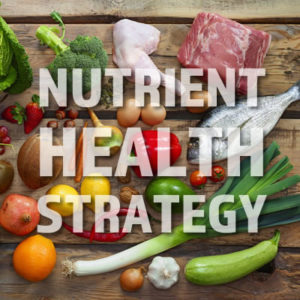Vitamin B5
Vitamin B5 is an essential nutrient that is naturally present in some foods, added to others, and available as a dietary supplement. The main function of vitamin B5 is in the synthesis of coenzyme A (CoA) and acyl carrier protein. CoA is part of the critical process of synthesising and breaking down fats in the body. It is also key to the citric acid cycle (which the body uses to produce energy). Vitamin B5 therefore helps to breakdown fats and carbs.
A wide variety of plant and animal foods contain vitamin B5. About 85% of dietary B5 is in the form of CoA or phosphopantetheine. These are converted to B5 in our stomach and gut. Red blood cells carry it throughout the body. Most vitamin B5 in our body is in the form of CoA, with some free B5.

The health benefits of vitamin B5 include helping with asthma, hair loss, allergies, stress and anxiety and heart problems. It also helps boost immunity, reduce arthritis, signs of aging, infections, diabetes, gout and skin problems.
Vitamin B5 is widely known to be beneficial in treating serious mental disorders like chronic stress and anxiety. A healthy diet should contain an appropriate amount of this vitamin to ensure good health and proper functioning of all the organ systems. It performs a wide variety of functions in our body, including the production of neurotransmitters in the brain, the fabrication of steroids, and the extraction of fats, proteins, and other vital nutrients from food.
In a nutshell, the essence of vitamin B5 affects every important aspect of your health.
Stress
Vitamin B5 plays a part in producing the sex and stress-related hormones (cortisol) produced in the adrenal glands. Vitamin B5 deficiency can contribute to low adrenal function. Stress creates a need for vitamins to be replaced. In studies, vitamin B5 is able to prevent excessive cortisol production in times of high or chronic stress.
Gout and vitamin B5
Vitamin B5 is needed to help with the excretion of uric acid. Stress often depletes the body of this vitamin, which may explain why gout flares during times of stress.
How much vitamin B5 do I need?
You should be aiming for much higher amounts of B5 than B6 or B12
Vitamin B5 and Choline
Vitamin B5 is crucial for converting the choline into acetylcholine (ACh).
Vitamin B5 Foods
Nutritional yeast (1 tsp): 12.5mg
Breakfast cereals (fortified): 10mg
Beef liver (100g): 10mg
Sunflower seeds (¼ cup) 2.4mg
Chicken breast (100g): 1.3mg
Tuna (100g): 1.4mg
Avocados: 2mg
Milk (1 cup): 0.9mg
Mushrooms (1 cup): 1.6mg
Potato (1 medium): 0.7mg
Egg: 0.7mg
Greek yogurt: 0.6mg
Vitamin B5 intake strategy
Our advice is to take a vitamin B complex supplement or a multi-vitamin that contains B5. It's advisable to get a whole-food intake as well. Nutritional yeast, sunflower seeds, chicken, tuna and liver (you can eat liver, liver wurst or pate) all contain lots of B5 and these are all nutrient dense foods that will transform your health.
Adequate intake: 5mg per day.
Theraputic dose: N/A
Upper tolerable limit: 1200mg.
Notes: Excesses are mostly excreted in the urine.
Sources: ods.od.nih.gov,

